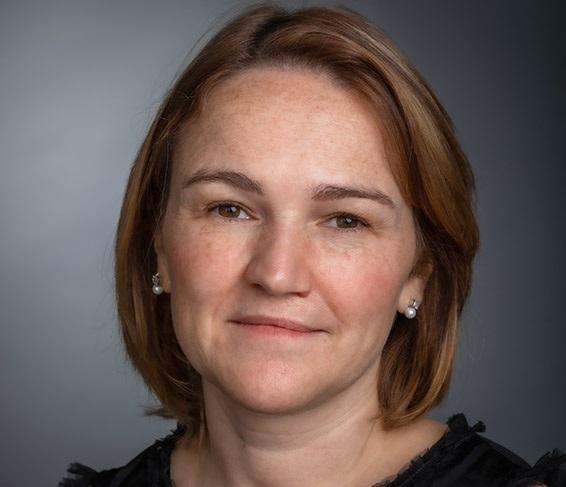New grant funds research at Dana-Farber to advance diagnosis of inflammatory breast cancer
Susan G. Komen, the world’s leading breast cancer organization, awarded a research grant to apply a new, first-of-its-kind tool that seeks to more accurately diagnose inflammatory breast cancer (IBC). The grant funds collaborative work being done at Dana-Farber and The University of Texas MD Anderson Cancer Center.
World-renowned breast cancer clinicians Filipa Lynce, MD, Director of the Inflammatory Breast Cancer Center at Dana-Farber, and Wendy A. Woodward, MD, PhD, at MD Anderson, are building off findings from the Susan G. Komen-IBCRF IBC Collaborative, in partnership with the Milburn Foundation, that were recently published in Breast Cancer Research and Treatment. The research team’s work will involve the application of a scoring system to increase diagnostic accuracy, predict outcomes, guide treatment decisions and identify criteria for inclusion in clinical trials. The scoring system uses a set of common diagnostic criteria to differentiate between patients who definitely have IBC, have a strong possibility of IBC or have a weak possibility of IBC. Upon confirming the scoring system’s accuracy, it could then be applied prospectively to patients.
IBC has historically been difficult to diagnose because it does not often present as a lump in the breast rather it appears as swelling or redness in the breast. Diagnosis is often delayed, misdiagnosed or missed. By the time IBC is detected, the cancer has already spread to other parts of the body and has become incurable in 30 percent of patients.
“An IBC diagnosis is very dependent on a provider’s experience, which is not acceptable because patients should receive the same care, regardless of where they live and where they seek care,” said Lynce. “The tool will help to define IBC, increase diagnostic accuracy and provide data to standardize how we diagnose and treat inflammatory breast cancer.”
Susan G. Komen, the Milburn Foundation and the Inflammatory Breast Cancer Research Foundation (IBCRF) have worked cooperatively since 2016 to advance IBC research and care through innovative approaches. This grant award marks a key strategic milestone in the groups’ collective efforts, which have been supported through previous collaborative campaigns and joint efforts like the Susan G. Komen and Milburn Foundation fundraising match campaign in March 2022.
“This grant is a unique opportunity to not just validate the scoring system but also create the mechanism of collaboration that is needed to continue to develop and move IBC research forward,” added Woodward, study co-investigator. “I think this unique funding approach will offer an incredible model for how to facilitate progress in a rare subtype of breast cancer and the work will lay the foundation to accelerate research that will lead to identifying more therapies that can be used to treat IBC patients.”
“The Collaborative has brought together patients, advocates, clinicians and researchers on a singular goal – to make progress in understanding and diagnosing this disease and advance treatment options,” said Victoria Wolodzko-Smart, VP of Mission at Susan G. Komen. “The grant announced today is a crucial next step in improving outcomes for inflammatory breast cancer patients, who have long waited for a breakthrough.”
Dr. Lynce is an Assistant Professor of Medicine at Harvard Medical School and a Breast Medical Oncologist at Dana Farber Cancer Institute and serves as the Director of the Dana-Farber Inflammatory Breast Cancer Program. Dr. Woodward is a Professor and the Chief of the Clinical Breast Radiotherapy Service in the Department of Radiation Oncology at The University of Texas MD Anderson Cancer Center and serves as the Deputy Director of the Morgan Welch Inflammatory Breast Cancer (IBC) Clinic and Research Program.
Media Contacts
If you are a journalist and have a question about this story, please call 617-632-4090 and ask to speak to a member of the media team, or email media@dfci.harvard.edu.
The Media Team cannot respond to patient inquiries. For more information, please see Contact Us.
